Interview with Emilio Calcagno by Gaia Clotilde Chernetich
Descrizione
In questa intervista, EMILIO CALCAGNO, coreografo di origine italiana residente in Francia dal 1989, restituisce una panoramica della sua formazione e del suo lavoro come danzatore e coreografo. Il suo approccio creativo intreccia eventi socio-politici con una consapevolezza approfondita di temi quali la memoria e la trasmissione coreografica. Come coreografo, Emilio Calcagno si è concentrato sulla ricostruzione di coreografie del passato come nel progetto Génération Bagnolet che ha riportato in scena alcune coreografie selezionate tra quelle presentate al concorso di coreografia di Bagnolet. Un’altra caratteristica del suo lavoro è il suo interesse per la multiculturalità e in particolare per le culture del Mediterraneo. Attualmente collabora con il Balletto Nazionale dell’Opera di Tunisi e dirige la compagnia ECO, da lui fondata nel 2006. Oltre alla sua carriera da coreografo, il lavoro di Emilio Calcagno ruota attorno alla pedagogia della danza e alla trasmissione di pratiche coreografiche alle nuove generazioni.
DOMANDE
[00:22] Autopresentazione di Emilio Calcagno
[01:27] Che tipo di saperi della danza conservi nel tuo corpo?
[04:55] Come intendi la nozione di “repertorio” nella danza contemporanea?
[06:54] Che cosa pensi di aver dimenticato? Che cosa rimane del tuo percorso di danzatore?
[08:42] Come accedi alla tua memoria corporea?
[11:01] Che cosa include il tuo archivio di coreografo?
[14:06] Quali sono i tuoi riferimenti coreografici e i contesti culturali in cui posizioni il tuo lavoro?
[18:34] Nel tuo lavoro coreografico, qual è il tuo approccio alla memoria e, nello specifico, alla tua memoria?
[22:26] Qual è il tuo rapporto con il Concours International de danse de Bagnolet? Come hai lavorato al progetto Génération Bagnolet?
Luogo/Tempo
Tunisi, Teatro dell'Opera
23 dicembre 2019
Formato
video/mp4 (238.11 MB PT26M16S)
Soggetto
• Catania ; L'Isola ; Les Quatre Saisons où Le Mariage du Loup ; Les Vertiges D'Hitchcock ; Nouvelle Vague - Génération Bagnolet ; Peau D'Âne ; Bausch Pina ; Castellucci Romeo ; Chaurand Jacques ; Dubois Olivier ; Forsythe William ; Lang Jacques ; Marin Maguy Perljocaj Angelin ; Angers ; Bagnolet ; Cannes ; France ; Italy ; Sicily ; Taormina ; Cinema ; Choreography ; Concours chorégraphique international de Bagnolet ; Comics ; Fairy tales ; Corporeal memory ; French contemporary dance ; Mediterranean ; Memory ; Non-danse ; Repertoire ; Technique ; Technology ; Theatre ; Trace ; Transmission ; Video-mapping







 è un servizio del
è un servizio del